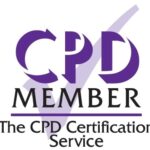Course Overview
Build robust frameworks to mitigate enterprise-level risks.
Course Overview
In today’s volatile, uncertain, complex, and ambiguous (VUCA) business environment, risk is no longer confined to individual functions—it is enterprise-wide and strategic. This course provides senior professionals with a robust framework for implementing Advanced Enterprise Risk Management (ERM) systems that safeguard assets, support governance, and enable better decision-making. Participants will explore integrated approaches to risk identification, analysis, and mitigation while aligning risk appetite with business strategy.
What you’ll learn
By the end of this course, participants will be able to:
– Identify, assess, and prioritise risks across business units and geographies.
– Integrate ERM with internal controls, compliance, and performance management.
– Use risk analytics and scenario planning to inform decision-making.
– Communicate risk insights to boards and senior stakeholders effectively.
Certification Details
Upon successful completion of this programme, participants will receive an Oxford Knowledge Certificate of Completion.
-
Awarded by: Oxford Knowledge
-
Format: Printed certificate with unique ID and optional digital verification
-
Delivery: Issued at course completion or sent within 7 working days
-
Recognition: Certificates validate participation in advanced, expert-led training aligned with global industry standards.
-
Accreditation: Oxford Knowledge certifications represent advanced learning led by global experts. We are actively pursuing formal accreditations with top-tier institutions to further enhance your credentials.
-
This certificate demonstrates your commitment to professional excellence and is a valuable addition to your leadership and development portfolio.
Requirements
- Ideal for risk officers, compliance heads, internal auditors, CFOs, and operational leaders.
- Suitable for public and private sector organisations across industries.
- English proficiency required (course delivered in English).
- Participants should be familiar with basic risk concepts or have experience in risk, audit, or strategy roles.







